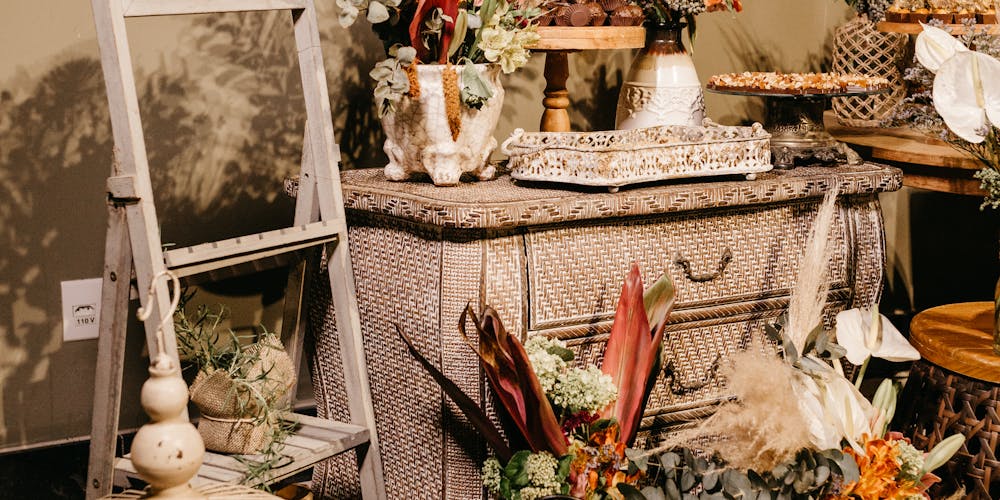Birds are fascinating creatures that can make wonderful companions. They come in all shapes, sizes, and colors, and each has its own unique personality. If you are thinking of getting a bird as a pet, one of the first things you will need to do is find a suitable cage for them.
But with so many different types and sizes of cages on the market, it can be overwhelming and confusing to know where to start. This article will guide you on how to find the best bird cage for your feathered friend.
Essential Features to Look for in a Bird Cage

Before we dive into the different types of bird cages available, let's first discuss the essential features to look for when choosing a cage for your pet bird.
Size of the Cage
The most important factor to consider when buying a bird cage is the size. A cage should provide enough space for your bird to move around comfortably, stretch its wings, and have room for toys and perches.
A good rule of thumb is to choose a cage that is at least twice the length of your bird from head to tail, twice the width, and twice the height. For example, if you have a small parakeet that is 6 inches long, your cage should be at least 12 inches long, 12 inches wide, and 12 inches tall.
It's always better to go for a bigger cage than a smaller one, as birds need plenty of space to exercise and stay healthy.
Shape of the Cage
The shape of the cage is another crucial aspect to consider. A rectangular cage is a good choice for most birds as it provides ample space for movement. However, some birds, such as parrots, prefer to climb, and a round or oval-shaped cage may be more suitable for them.
Also, keep in mind that birds need horizontal space to fly and vertical space to climb and play. So, if you have a larger bird, consider getting a cage with more height rather than width.
Bars of the Cage
The bars of the cage play a significant role in your bird's safety and comfort. The spacing between the bars should be close enough that your bird cannot escape, but not so close that its feathers get caught or damaged.
For smaller birds, such as finches or canaries, the bar spacing should be no more than ½ inch. For medium-sized birds like parakeets and lovebirds, ½ to ⅝ inch spacing is ideal. And for large birds like macaws and cockatoos, the bar spacing should be between ¾ to 1 inch.
It's also essential to choose a cage with bars made of a strong and durable material, such as stainless steel, wrought iron, or powder-coated metal. Avoid cages with plastic or wooden bars as they can easily be chewed through by your bird.
Door of the Cage
The door of the cage should be large enough for you to comfortably reach in and clean the cage or change food and water bowls. It should also have a secure lock to prevent your bird from escaping.
Consider getting a cage with two doors, one on the front and one on the top, as it will make it easier for you to access your bird from different angles.
Accessories in the Cage
A good bird cage should come with various accessories to keep your feathered friend entertained and healthy. These include perches, food and water bowls, and toys.
Perches are essential for birds as they provide a place for them to rest, sleep, and exercise their feet. Choose perches of different sizes and textures to simulate a natural environment for your bird.
Food and water bowls should be made of non-toxic materials and easy to clean. Consider getting bowls that attach to the cage to prevent your bird from tipping them over and making a mess.
Toys are crucial for keeping your bird mentally stimulated and preventing boredom. They also provide exercise and promote natural behaviors, such as chewing and foraging. Choose toys that are appropriate for your bird's size and breed, and rotate them regularly to keep things interesting.
Different Types of Bird Cages: Pros and Cons

Now that we have covered the essential features to look for in a bird cage, let's explore the different types of cages available and their pros and cons.
Traditional Cage
Traditional cages are the most common type of bird cage and can be found in various shapes, sizes, and materials. They usually have a rectangular shape with bars on all sides and a front-facing door.
Pros:
- Affordable and widely available
- Easy to clean and maintain
- Can fit in any room or space
- Comes in various sizes to accommodate different birds
Cons:
- Limited vertical space for climbing
- May not be suitable for larger birds
- Some models may have sharp edges or gaps between bars, which can cause injury to your bird
Flight Cage
A flight cage, also known as an aviary, is a large enclosure that allows birds to fly freely. They can be made of wire or mesh and placed indoors or outdoors.
Pros:
- Provides ample space for birds to exercise and play
- Suitable for multiple birds
- Can be customized with perches, swings, and toys
- Comes in different sizes to accommodate different birds
Cons:
- Requires a lot of space
- More expensive than traditional cages
- May not be suitable for small living spaces
- Can be challenging to clean
Travel Cage
Travel cages are smaller, lightweight, and portable cages designed for transporting birds. They often come with a carrying handle and can be collapsed for easy storage.
Pros:
- Perfect for short trips or visits to the vet
- Easy to clean and maintain
- Lightweight and portable
- Can also serve as a temporary cage when cleaning or disinfecting your bird's main cage
Cons:
- Not suitable for long-term use
- May not provide enough space for your bird to move around freely
- Limited features and accessories compared to traditional cages
Playtop Cage
Playtop cages are a combination of a traditional cage and a play gym. They feature a large top area where birds can perch, play, and exercise outside of their cage.
Pros:
- Provides extra space for your bird to play and socialize
- Comes with additional perches and toys
- Can be a source of mental stimulation for your bird
- Allows for interactive playtime with your bird
Cons:
- More expensive than traditional cages
- Requires more space due to the added play top area
- May not be suitable for birds that like to chew on wood or plastic, as many playtop cages have these materials as part of the design
Size Considerations for Bird Cages

As mentioned earlier, the size of the cage is an essential factor to consider when choosing a bird cage. Here is a table with recommended minimum cage sizes for various bird species:
Bird Species | Minimum Cage Size ---- | - Small birds (Finches, Canaries) | 18 inches long x 18 inches wide x 24 inches tall Medium birds (Budgies, Cockatiels) | 24 inches long x 24 inches wide x 30 inches tall Large birds (Parrots, Conures) | 36 inches long x 36 inches wide x 48 inches tall Extra Large birds (Macaws, Cockatoos) | 48 inches long x 48 inches wide x 60 inches tall
It's worth noting that these are the minimum recommended sizes, and it's always better to go for a bigger cage if possible. Also, if you have multiple birds, you will need to provide more space to prevent overcrowding and potential conflicts.
Materials and Durability of Bird Cages

The material and durability of a bird cage are crucial for your bird's safety and the longevity of the cage. Here is a breakdown of the most commonly used materials for bird cages:
Stainless Steel
Stainless steel is the gold standard when it comes to bird cages. It is highly durable, non-toxic, and easy to clean. However, they can be quite expensive and heavy, making them less portable.
Wrought Iron
Wrought iron is another excellent option for bird cages. It is strong, durable, and relatively easy to clean. Some models may also come with powder-coated finishes for added protection.
Powder-Coated Metal
Powder-coated metal cages are made of metal that has been coated with a layer of powdered paint and then baked on. This method provides a smooth and durable finish, making these cages easy to clean and maintain.
Acrylic
Acrylic cages are lightweight, clear, and allow for better visibility of your bird. They are also durable, easy to clean, and non-toxic. However, they may not be suitable for larger birds as they may chew through the acrylic material.
Plastic
Plastic cages are affordable and available in various colors and designs. However, they are not very durable and can easily be damaged or chewed through by your bird.
Bamboo
Bamboo cages are becoming increasingly popular due to their eco-friendliness and natural look. They are also lightweight and relatively easy to clean. However, bamboo is not as durable as other materials and may not be suitable for larger birds.
No matter what material you choose, make sure it is non-toxic and does not contain any harmful chemicals that could harm your bird.
Design and Functionality of Bird Cages

Apart from size, shape, and material, the design and functionality of a bird cage are also important factors to consider. Here are some features to look for:
Removable Tray
A removable tray at the bottom of the cage makes cleaning much more manageable. Look for cages with trays that can easily slide out or be lifted out for quick and thorough cleaning.
Seed Guards
Seed guards are panels that attach to the bottom of the cage to catch any food debris that falls out of the cage. This feature not only helps keep your bird's living space clean but also prevents food from attracting pests.
Wheels
If you plan on moving your bird's cage around frequently, look for one with wheels. This will make it easier to transport and clean around the cage.
Perches and Toys
Some cages may come with attached perches, swings, and toys, while others may have space to add your own. Consider these features when choosing a cage, as they can provide entertainment and exercise for your bird.
Safety Features to Consider in Bird Cages
As a responsible pet owner, it's essential to ensure your bird's safety and well-being. When buying a bird cage, here are some safety features to keep in mind:
- Non-toxic materials: Make sure the cage is made of non-toxic materials, including paint, metals, and wood.
- No sharp edges or gaps: Check the cage thoroughly for any sharp edges or gaps between bars that could potentially harm your bird.
- Secure doors and locks: Ensure that the cage doors are secure and cannot be easily opened by your bird.
- Non-toxic finish: If you choose a powder-coated cage, make sure the finish is non-toxic and safe for your bird to chew on.
- Ventilation: A good bird cage should have proper ventilation to prevent your bird from overheating or breathing in stale air.
Cleaning and Maintenance of Bird Cages
Keeping your bird's cage clean is essential for their health and well-being. Here are some tips for cleaning and maintaining your bird's cage:
- Spot clean daily: Remove any food debris or droppings from the cage daily.
- Deep clean weekly: Once a week, remove all accessories and perches, take out the tray, and give the cage a thorough cleaning with warm water and mild soap. Make sure to rinse and dry the cage thoroughly before returning the accessories and perches.
- Disinfect regularly: Every few weeks, use a bird-safe disinfectant to clean your bird's cage. Make sure to follow the instructions on the product carefully.
- Replace accessories: Check toys, perches, and food and water bowls regularly for wear and tear and replace them as needed.
- Air out the cage: Give your bird's cage some fresh air by placing it outside for a few hours once a month. Make sure to do this on a pleasant day and in a secure area.
Where to Buy Bird Cages: Online vs. In-Store
Now that you know how to choose the best bird cage for your pet, the next question is where to buy one. Two of the most popular options are online and in-store. Here are some pros and cons of each:
Online
Buying a bird cage online can be convenient and cost-effective. You have a wide variety of options to choose from, and you can easily compare prices and read reviews. However, you won't be able to see the cage in person before purchasing and may have to pay for shipping.
In-Store
Buying a bird cage in-store allows you to see and touch the cage before buying. You can also ask for assistance from an associate and get advice on choosing the best cage for your bird. However, the options may be limited, and the cages may be more expensive than online.
Ultimately, the decision will depend on your personal preference and convenience.
Expert Tips for Finding the Best Bird Cages
To wrap up this guide, here are some expert tips to keep in mind when searching for the best bird cage:
- Avoid used cages: It's better to invest in a new cage rather than buying a used one. Used cages may have hidden damage or contain harmful substances that could harm your bird.
- Consider your bird's behavior: If you know your bird's behavior, such as chewing or climbing, choose a cage that can accommodate their needs.
- Invest in quality: A good bird cage is a long-term investment, so it's worth spending a little extra on a high-quality, durable cage.
- Research bird breeds: Different bird breeds have different needs and require different cage sizes. Make sure to research the specific breed of your bird before making a purchase.
- Check the weight limit: Some cages may have weight limits, so make sure to check the manufacturer's recommendations before adding additional accessories or birds to the cage.
Conclusion
Finding the best bird cage for your feathered friend may seem like a daunting task at first, but with these guidelines, you can confidently choose the perfect home for your pet bird. Remember to consider size, shape, materials, design, and safety features, and don't hesitate to seek advice from experts or fellow bird owners. With the right cage, your bird will have a comfortable and safe space to call home.



